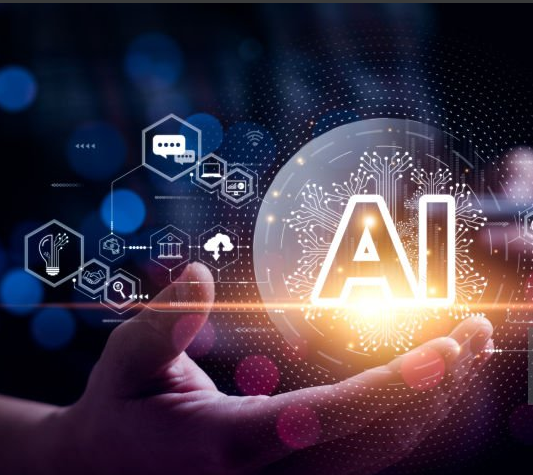
The year 2024 promises to be the full unleashing of Generative AI (GenAI) with industry- and company-specific solutions popping up like boom towns during The Gold Rush. Innovators, product leads, and project managers need a new vocabulary and more sophisticated implementation models to address these novel technologies. While we are learning a lot about GenAI implementations today, as with anything that is state-of-the-art and new concept, one thing remains the same. And that is with new promise comes new risk. Read on for early predictions on potential trouble spots, starting with large language models (LLMs).
The Rise of Large Language Models
GenAI projects rely on an LLM, which must be trained to provide the types of insights and responses needed. As more industry- and company-specific LLMs are deployed in 2024, we will see a need for deeper contextual cues and rules to ensure that the GenAI model is delivering the way it should. GenAI will be able to drive new insights in all aspects of corporate operations. This will include strategy, sales, manufacturing, resource management, customer delivery, and support. We will see shifts toward complex automation in core corporate planning actions like supply chain management, portfolio management, governance, and more. Also in 2024, there will be a new raft of projects and products based around GenAI.
The teams charged with working on these will undoubtedly be a mix of professionals possessing either or both experience and technical acumen with AI. As such, businesses engaging in GenAI will need to be clear about the big ticket risks of these systems. Below are six risks to be on the lookout for, along with my recommendation for two new project team roles to help you better safeguard your business in this brave new world of GenAI.
Looking around Corners: Six Potential Risks with GenAI
- Data Privacy and Security. Perhaps the biggest risk in a Generative AI environment, the use of sensitive data in a large language model presents a need for continuous testing and refinement. For example, data security in a financial system is non-negotiable. As such, building in the learning-based contextual rules around an AI-enabled FinTech product or system must be priority #1.
- Process Automation Validation and Integration. Deploying Al requires rigorous testing to ensure outputs improve process outcomes and don’t introduce new risk or work. For example, does a new AI chatbot cause an uptick in call volume?
- Data Availability and Quality. Getting the data right in an LLM is dark magic, and should be iterated. Inadequate data hinders training and performance of Al models. Conversely, large and diverse datasets challenge the organization with privacy concerns. Likewise, biased or incomplete data can lead to inaccurate outputs, exacerbating disparities.
- Investment and Return. Today, GenAI solutions are the purview of large tech companies and startups, although that is rapidly changing. For the Great Middle — traditional companies that see the potential and promise, but must shift and adopt AI — there is a bell curve of adoption. Those who adopt early will realize great leaps in their productivity and the value they deliver to their clients. However, cost is paramount, and as we know, developing and implementing a GenAl model requires substantial resources. These resources include researchers, clinicians, infrastructure, and high-quality data to name a few. As these costs come down over time, more companies will dive into the LLM market.
- Ethical Issues. Creating the right accountability and explainability for a GenAI’s output is important. As LLMs evolve, they will be driving decision making, policy, and eventually will be creating new knowledge themselves. A lack of transparency for how Al arrives at its decisions may lead to deep mistrust and deteriorate brand loyalty.
- Regulatory Approvals. Change comes hardest to the industries that need it the most. Implementing a GenAI platform that requires regulatory approval can be both complex and time consuming. In the world of health tech, for example, new precision medicine algorithms are leveraging LLMs for customer-facing guidance. The FDA and other regulators require extensive validation and evidence of safety and efficacy — and rightfully so. So, plan for these actions early and work closely with the regulatory body to ensure proper compliance.
Two New Roles To Consider in Your GenAI Implementation:
- LLM Trainer. This role would be assigned early in the project, and the individual would be responsible for working with the AI platform to build the context-sensitive use cases. This role will prove to be critical for the translation of neural algorithms into actual user inputs and outputs.
- Prompt Engineer. This would be a customer-facing role that would help your users to get the right types of responses from the system, especially early on. These resources should be assigned at the outset and ramped up before testing begins, so they can understand the strengths and weaknesses of the system.
We are all learning new things at a rapid pace in this novel environment, so we wish you patience and sanity in 2024 (and perhaps a bit of reassurance knowing more about what to look out for and who to hire to help keep watch). Happy LLM training!
A Call to Action
Want to learn more about healthy stakeholder engagement and how Teaming Worldwide can help your company take the guesswork out of innovation? Visit teamingworldwide.com/innovation to schedule a discovery call or email hello@teamingworldwide.com for more info.
Intentional Innovation® Powered by Teaming Worldwide
Intentional Innovation® is a commercially-proven innovation operating system designed to simplify and implement higher-performing, longer-lasting solutions that drive market disruption, new revenue, and deeper customer engagement.
Ready to learn more about Intentional Innovation® and how Teaming Worldwide can help you solve your business’s most pressing innovation pain points? Let’s connect. Visit www.teamingworld.com/innovation to schedule a discovery call or email hello@teamingworldwide.com.



